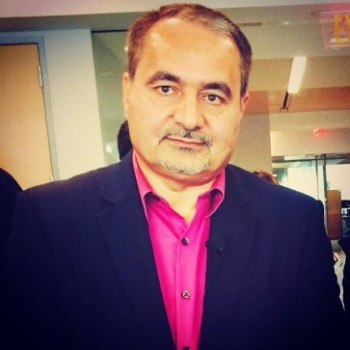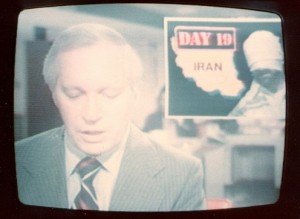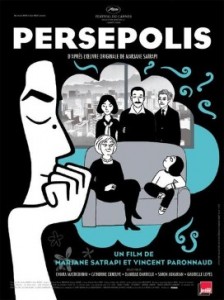
U.S. – Iran Relations: Past, Present, and Future
Yesterday the Atlantic Council South Asia Center held an event featuring Mr. Seyyed Hossein Mousavian, former Iranian diplomat and author, and Mr. John Marks, President and Founder of Search for Common Ground, a conflict prevention and conflict resolution NGO.
The speakers explored the basic premise that a major factor in achieving a negotiated agreement over Iran’s nuclear program may rest on achieving mutual understanding between the negotiating parties. To do this, the speakers discussed the past, present, and future of the U.S.-Iranian relationship.
Past
Mr. Mousavian began the event by taking a closer look at the history of relations between the U.S. and Iran. He broke the relationship into three sections:
 A century of close, friendly, and strategic relations from 1856 until 1953.
A century of close, friendly, and strategic relations from 1856 until 1953.- Dominant era, categorized by the sudden push for the nationalization of Iranian oil and a subsequent change in US policy to support a coup, toppling the democratically elected prime minister in favor of a Shah dictator from 1953 until 1979.
- Hostile relations, categorized by misunderstandings, mistrust, and miscommunications from 1979 to the present.
Mr. Mousavian emphasized that during the first century of U.S. – Iranian relations, both countries maintained very friendly partnerships, to the point where an American was invited by the Iranian parliament and government to work on the country’s budget. Such an invitation today would seem entirely unimaginable.
Present
According to Mr. Mousavian, reasons for the deterioration of relations include grievances from both sides and a lack of reconciliation over the following issues:
Iran’s Grievances:
- U.S. support of Iranian coup in 1953 and Shah dictatorship for 8 years.
- U.S. support of Saddam Hussein in the 1980s Iran-Iraq war, who used chemical weapons to kill/injure 100,000 Iranians
- Sanctions policy that is more coercive than North Korea’s when Iran doesn’t yet have nuclear weapons.
U.S. Grievances:
- The Iranian Hostage Crisis in 1979.
- Iran’s uranium enrichment program.
- Iranian support of the insurgency in Iraq (not mentioned by the speaker).
- Iranian support of terrorism in the Middle East (also not mentioned by the speaker).

This hostility has resulted in mistrust and miscommunication between both countries. Mr. Mousavian stated that, “the current state of affairs can’t maintain, and the objective is the future.” He also stressed that the problems with Iran aren’t limited to nuclear problems, since Iran remains a key player in the Middle East and cooperation with Iran will be of essence in resolving issues within the region.
Future
Mr. Mousavian recommends a phased approach comprehensive deal in order to restore U.S. – Iranian relations to their former glory. He believes that the first phase should address the nuclear issue, followed by phases addressing issues such as terrorism, human rights, Iraq, Syria, energy, etc. In addition to this, he underlined the importance of politicians recognizing each other’s grievances and seeking reconciliation.
Both Mousavian and Marks emphasize focusing on issues of common interest in order to foster cooperation, then building upon that to discuss differences and issues of contention. Common interests between the U.S. and Iran include:
- Fighting drug trafficking and narcotics
- Supporting the governments in Iraq and Afghanistan
- Combatting salafism
- Maintaining security in the Persian Gulf
Lastly, immediately after negotiations take place, Mr. Mousavian, along with Mr. John Marks, advise strengthening civilian diplomacy. There has already been a certain amount of public diplomacy in Iran in recent years to try to rebuild a relationship between the two countries, however Marks and Mousavian believe leaders in both countries should open doors for civilian relations with no limits. Marks provided an example of ways in which this civilian diplomacy could occur, including scientific, cultural, and academic exchanges.
As discussed in ASP’s “Perspective – U.S. Public Diplomacy Towards Iran,” this type of public diplomacy could help in fostering trust between the U.S. and Iran, in addition to dispelling negative perceptions on both sides.
The event ended with a Q&A session in which both speakers addressed the issue of provocations during the upcoming negotiations, suggesting that leaders should discount any provocations from hardliners in advance and maintain the political will to overcome them.
In addition, both speakers sent a message to Iranian Americans who they believe could serve as a huge asset in mediating better relations between the two countries since they are in favor of both sides. Mousavian and Marks concluded by mentioning that so long as Iran isn’t deprived of their legitimate interests, the Iranian government will be willing to cooperate in the upcoming negotiations.
Theresa Shaffer is a nuclear security researcher and intern at the American Security Project. She is a recent graduate of the University of North Texas with degrees in International Studies and French. You can follow her on twitter here: Theresa Shaffer







[…] U.S. – Iran Relations: Past, Present, and Future […]